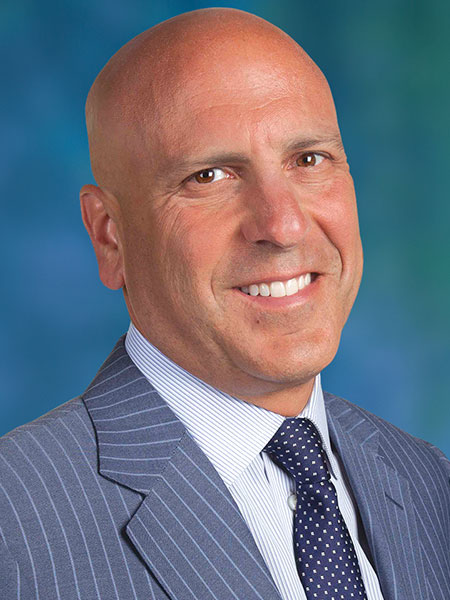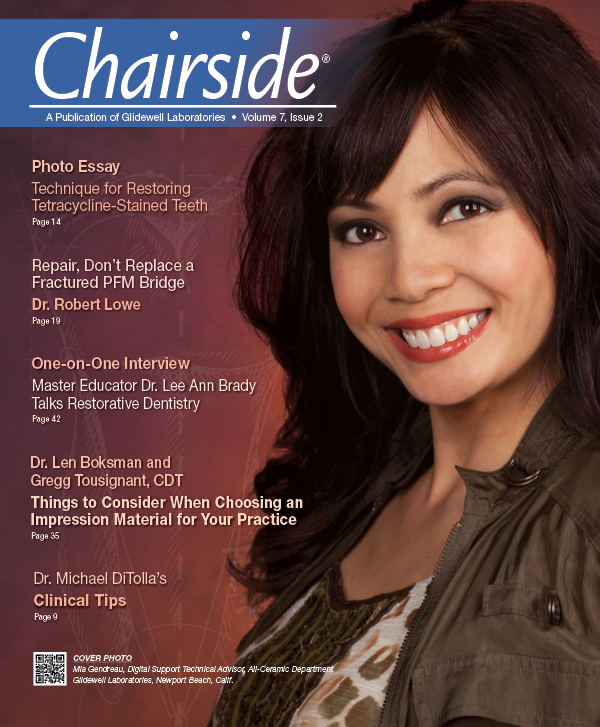Editor’s Letter
I have always thought it would be a good idea to do an educational video that focused strictly on restorative repairs, but this has proven to be a more difficult program to put together than I expected. It’s not as if fractured ceramic restorations walk through the door every day, yet when they do, it sure is nice to have a good solution. So I thought the next best thing would be a pair of articles on repairs from Dr. Robert Lowe, a frequent contributor to Chairside®.
In Part 1, Bob shows you how he repairs a broken PFM restoration with a porcelain veneer, or more specifically, how he gives new life to an old PFM by “resurfacing” it with a porcelain veneer. This strategy works well when the metal substructure is not completely exposed.
In Part 2, Bob makes use of a “saddle crown” to cover a fully exposed metal substructure, which he has prepared to give the saddle crown adequate strength and esthetics. This technique can be extremely helpful when you have completed a large anterior bridge, for example, and something chips or breaks within the first year.
The other thing that made me abandon the idea of putting together a video on repairs is the shrinking number of repairs I’ve had to do since becoming a predominately “monolithic” dentist. In other words, I use a lot of IPS e.max® in the anterior and a lot of BruxZir® Solid Zirconia in the posterior, and I just don’t see either of these restorations fracturing.
Even though I haven’t done a single-unit PFM in years, I still use PFMs for bridges. As any bilayered restoration has the potential for those layers to separate, Bob’s repair techniques will continue to be useful for the foreseeable future.

Yours in quality dentistry,

Dr. Michael C. DiTolla
Editor-in-Chief, Clinical Editor
mditolla@glidewelldental.com


